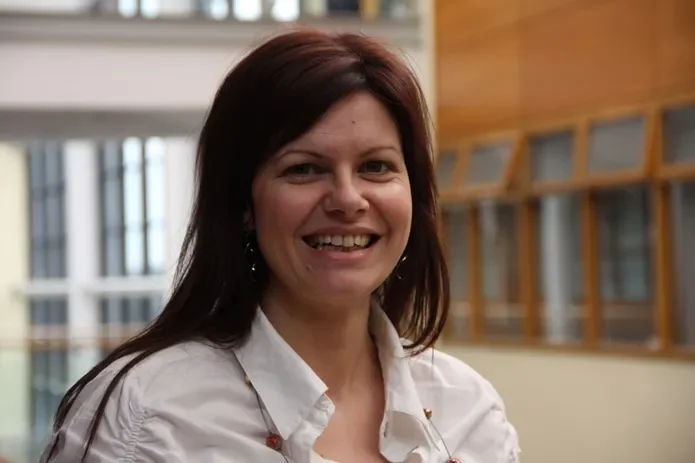

A new way of targeting dermatitis – with compounds from the sea
This week’s Spotlight on Research is with Professor Christine Loscher, DCU School of Biotechnology, Associate Dean of Research in DCU. Prof Loscher was named in Silicon Republic’s list of top scientists for 2019.
Prof Loscher's research looks at ways to manage the immune system in humans.
“Your immune system is a really important surveillance and alarm system in your body, it watches out and protects you against bacteria and fungi and viruses that cause disease and infection.
But sometimes the immune system can be overactive, and this can cause problems like flare-ups of dermatitis. We want to be able to dampen down the immune reactions that cause those problems without reducing its ability to fight off infections.”
And you look to the sea for ways to do this?
“Yes, the sea is teeming with all sorts of life, and those diverse life forms produce chemicals and compounds that may be able to affect our immune systems.
So in my lab we start with material from the sea – that might be waste catch from fisheries or seaweed - and we carry out screening tests to see if any sources interact with the immune system.”
You found something in seaweed, tell us more.
“We found a compound of interest and we worked with chemists in University College Dublin to figure out what was going on. It turns out that this compound from seaweed blocks a key switch in our immune systems called Mal.
This stops the kind of inflammatory response that triggers a flare up of dermatitis but it doesn’t stop other important functions of the immune system.”
Very interesting! How has the work progressed?
"We got funding from Enterprise Ireland to formulate the compound for a topical cream, one you can rub on the skin, and the results we had in lab tests showed it could reduce dermatitis symptoms.
Now that cream will be tested against a standard steroidal cream, and we hope that will lead to the compound we found being used more widely.
We hope it will be of particular benefit for babies, and also for use with animals such as dogs, who are prone to dermatitis, because the compound is so targeted and it is unlikely to bring negative side effects.”
What keeps you going during a project like this?
“I think it’s when one of the PhD researchers or post-docs in my lab comes in and says they have found something interesting or they got really positive results from an experiment.
What keeps us all going is that someone will ultimately benefit from the work, that we may be able to reduce their discomfort or suffering.”
What is the most challenging aspect of research at the moment?
“It can be hard to keep up with the funding landscape. It’s very competitive, and you have to constantly reassess your research to make sure you can get the most of funding opportunities.
On the one hand that often means partnering with industry, which is positive and it helps industry growth, but it can also make it more difficult for the scientists who want to ask those ‘blue-sky’ questions no-one has figure out before, and it’s really important that we keep asking those fundamental questions and building knowledge.”
What do you do in your spare time?
“I have a busy family life, but when I get the chance I go to the gym and I take part in spin classes. It’s hard work but a good way to energise and often I go with friends so there’s a social side too.
I like to garden in the allotment with my mother too, we grow vegetables. I also like to read, usually completely pure fiction because in work I read a lot of facts.”
Click here to read the full profile of top scientists as compiled by Silicon Republic
